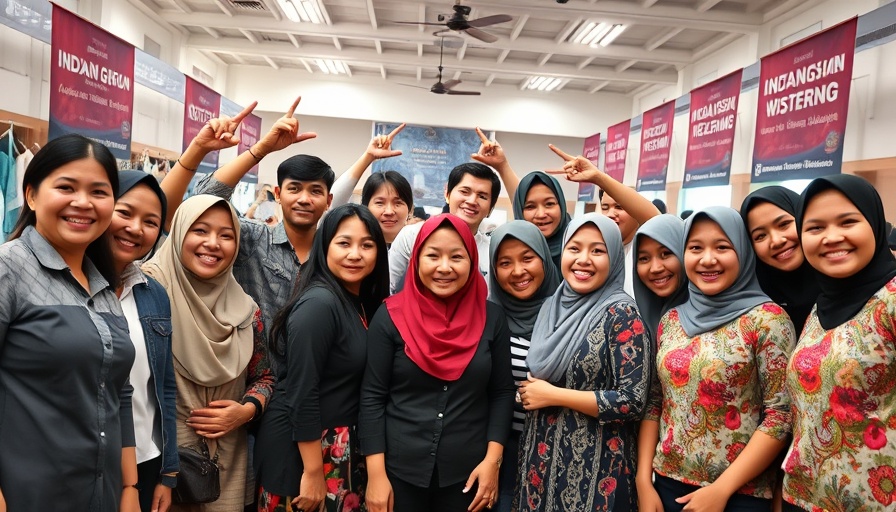
Empowering Change: A New Era for Indonesian Garment Workers
In a landmark agreement signed in 2024, two garment factories in Indonesia made a significant commitment to eliminating gender-based violence in workplaces dominated by female workers. This initiative is not merely a symbolic gesture; rather, it establishes a practical framework aimed at ensuring safer working environments through a union-led program. With more than 6,000 workers, this agreement is the first step in a potential nationwide shift that champions the rights and safety of women in the garment industry.
Why This Agreement Matters to Workers
Women in Indonesian garment factories have long faced systemic issues of harassment and violence, with many recounting experiences of verbal abuse and unsolicited advances that often went unaddressed. Sekar, a union leader involved in this groundbreaking project at PT Batang Apparel Indonesia, expressed, "This agreement is proof of the power of workers to get a comfortable and safe workplace." By holding factories accountable through potential sanctions, including the full withdrawal of contracts from large Western brands like Fanatics and Nike, the agreement strives to create a more balanced power dynamic.
A Unique Collaborative Model
The collaboration between labor unions, non-profit organizations, and businesses marks a transformative approach towards corporate sustainability and social justice. Turyana, another union leader at PT Semarang Garmen, highlighted plans not just to install such agreements in more factories, but to use the successful deployment at these two sites as pilot programs for a broader movement across Central Java. This could lead to collaborations that incorporate modern eco-conscious practices such as off-grid solar and urban farming within the workplace.
The Role of Research in Driving Change
The significance of comprehensive investigations into workplace practices can't be overstated. An inquiry conducted by the Workers Rights Consortium, along with local Indonesian organizations, unveiled concerning trends: inadequate management responses to violence reported by workers, the complicit nature of factory owners, and glaring gaps in the monitoring processes of international buyers. This reveals more than just a local issue; it raises questions about corporate sustainability practices in global supply chains.
Broader Implications for Corporate Sustainability
What does this mean for the garment industry's compliance with sustainability goals? With demands for ethically sourced goods on the rise, brands must align their supply chains not merely to profit but to uphold human rights and ethical standards in labor practices. As the world shifts towards reducing fossil fuels, sustainability in business encompasses social dimensions alongside environmental considerations.
Moving Towards a Sustainable Future
This gender justice agreement highlights the urgent need for accountability in corporate practices, and it poses an interesting opportunity for businesses interested in adopting sustainable practices. Imagine if eco-conscious companies began to incorporate sustainable energy solutions like solar-powered businesses, capitalizing on communal efforts for a greener environment. Moreover, as the movement grows, opportunities arise for developing eco-friendly products, such as paper wrappers, to further reduce environmental impact.
Take Action: A Call for Collective Responsibility
As advocates for sustainability and community-oriented business practices, it’s crucial to understand and support movements like these. The positive ramifications of the Indonesian garment workers' gender justice agreement are not confined to individuals alone; they resonate with a global audience seeking effective models of corporate responsibility. Encourage local businesses to join this movement by implementing similar agreements and practices in your area. Think about how this might shift the landscape for sustainability, not just locally, but around the world.
A Journey Towards Awareness and Empathy
In essence, this journey toward gender justice in Indonesian garment factories provides a lens through which we can view broader themes of equity, sustainability, and humanitarian responsibility. As employees and employers alike begin to understand the implications of their actions, it becomes easier to foster environments thriving on respect, reflecting our values in practice. The urgency to combat gender violence while adopting sustainable practices encapsulates a bright future for humanity and our planet.
 Add Row
Add Row  Add
Add 




 Add Row
Add Row  Add
Add 

Write A Comment